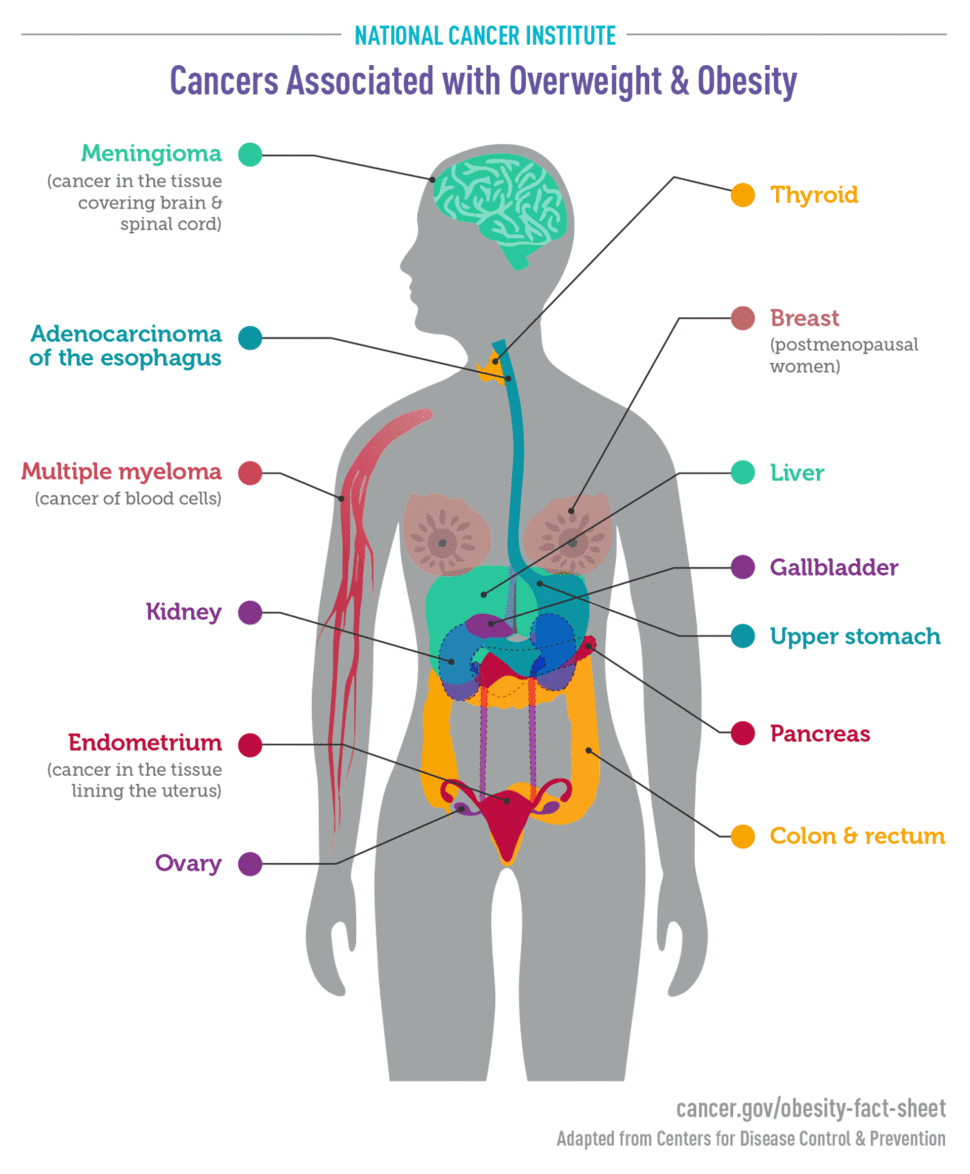Weight loss is often perceived as a means to achieve an ideal body image, but its benefits extend far beyond appearances. Weight management helps to support overall health and wellness, and a weight management program may contribute many positive changes to various aspects of your life.
1. Improved Heart Health
Excessive weight can strain the cardiovascular system, leading to issues like high blood pressure, elevated cholesterol levels, and an increased risk of heart disease. Weight loss can significantly lower these risks, enhancing heart health and overall cardiovascular function.
In a 2023 comprehensive analysis of 124 clinical trials involving over 50,000 participants, researchers found that individuals who underwent intensive behavioral programs to achieve weight loss experienced notable reductions in risk factors associated with heart disease and type 2 diabetes. Interestingly, these decreased risk factors endured for years beyond the duration of the programs, despite the possibility of partial weight regain in some instances.
Similarly, in the August 2023 SELECT trial results, semaglutide, a popular GLP-1 medication FDA-approved for weight loss, was found to reduce the chance of cardiovascular events by up to 20%. More research is needed to tell if that’s due to the weight loss alone or some function of semaglutide itself.
2. Enhanced Blood Sugar Control
Maintaining a healthy weight plays a pivotal role in managing blood sugar levels. By shedding excess weight, you can reduce insulin resistance and lower the risk of developing type 2 diabetes. This is particularly crucial given the growing prevalence of diabetes worldwide.
One study found that losing even 5 to 10% of one’s body weight resulted in improved blood sugar and A1C levels. And another argued that “it takes only small amounts of weight loss to prevent progression to type 2 diabetes from impaired glucose tolerance.”
3. Alleviated Joint Stress
Excess weight puts undue stress on your joints, leading to conditions such as osteoarthritis. Weight loss can alleviate this stress, reducing joint pain and enhancing mobility. It's a step towards a more active and pain-free lifestyle.
In fact, according to the American Academy of Orthopedic Surgeons, “every pound of body weight places four to six pounds of pressure on each knee joint. Individuals with obesity are 20 times more likely to need a knee replacement than those who are not overweight.”
For those with both obesity and osteoarthritis, weight loss can also improve pain and joint deterioration associated with osteoarthritis.
4. Better Sleep Quality
Weight loss can have a positive impact on sleep quality. Conditions like sleep apnea, often exacerbated by excess weight, can be mitigated through weight loss. This, in turn, leads to better sleep patterns, increased energy levels, and improved overall well-being.
In a 2012 study, a team from Hopkins University enlisted the participation of 77 individuals with overweight and either prediabetes or type 2 diabetes. A significant number of these volunteers reported encountering sleep-related issues such as sleep apnea, daytime weariness, insomnia, and disrupted sleep patterns before starting. Half of the volunteers engaged in a weight-loss regimen coupled with supervised exercise sessions, while the remaining half solely followed the diet plan. Over the course of six months, both sets of participants experienced an average weight loss of 15 pounds, accompanied by a 15% decrease in abdominal fat. Encouragingly, sleep quality exhibited enhancements in both groups. Strikingly, the reduction in abdominal fat emerged as the most reliable indicator of improved sleep patterns.
5. Boosted Mental Health
Losing weight isn't just about achieving a desired physical appearance; it also has a profound impact on mental health. The intricate connection between physical and mental well-being means that when we prioritize our body's health, our mind reaps the benefits as well.
According to studies, those living with obesity experience depression and anxiety at higher rates than the general population. Achieving weight loss goals can also boost self-confidence and improve body image, leading to reduced stress and enhanced mental health. Here’s how:
Enhanced Self-Esteem and Confidence:
Weight loss can lead to improved self-esteem and self-confidence. As individuals see progress in their weight management journey, they often feel healthier and, because of that, gain a sense of accomplishment and pride. This positive self-perception can transcend into other areas of life, fostering a more positive attitude towards challenges and a belief in one's capabilities.
Reduced Anxiety and Depression:
There is a well-established link between obesity and mental health issues like anxiety and depression. A 2003 study found that those living with obesity, for example, are almost five times more likely to have experienced an episode of major depression in the past year as compared with those of average weight.
The physical discomfort and societal stigma associated with excess weight can further contribute to these mental health struggles. As body weight lowers and health improves, individuals often experience reduced anxiety and depressive symptoms. This can be attributed to the alleviation of both physical and emotional burdens.
Increased Energy and Vitality:
Weight loss often results in increased energy levels. Regular physical activity, which is an integral part of most weight loss journeys, releases endorphins, the body's natural mood lifters. The surge of endorphins can lead to a more positive outlook and a greater sense of overall well-being.
In addition, for those taking a weight management medication, the reduction in “food noise” (undesirable food-focused thoughts) can leave them more mental energy to focus on other goals and activities.
Improved Body Image:
Body image plays a significant role in mental health. As individuals work towards achieving a healthier weight, they may also cultivate a more positive body image. Acceptance of one's body and its capabilities can lead to reduced anxiety about appearance and an overall improved sense of self-worth.
Stress Reduction:
While weight loss itself can be a challenging journey, adopting healthier habits may lead to reduced stress over time. Engaging in regular exercise, practicing mindful eating, and prioritizing self-care all contribute to stress reduction, which in turn benefits mental health. Learn more about the link between obesity and stress.
Improved Sense of Control:
Taking charge of one's health and making positive lifestyle changes can impart a strong sense of control over life. This empowerment can extend beyond the physical realm and positively influence mental health by reducing feelings of helplessness and anxiety.
The relationship between weight loss and mental health is deeply intertwined. The physical improvements resulting from weight loss have a cascading effect on mental well-being, fostering a more positive self-image, reducing anxiety and depression, and enhancing overall mental health. However, it's important to approach weight loss with a balanced and holistic mindset, focusing on sustainable habits and seeking professional guidance when needed to ensure that the journey benefits both the body and mind.
6. Reduced Cancer Risk
According to research from the American Cancer Society, excess body weight is thought to be responsible for about 11% of cancers in women and about 5% of cancers in men in the United States, as well as about 7% of all cancer-related deaths. The CDC reports that overweight and obesity have been linked to 13 cancers, including breast cancer, cancer of the kidneys, and thyroid cancer.

Weight loss can lower the likelihood of developing certain cancers, thereby contributing to an extended and healthier life.
For example, in a 2022 study published in JAMA, researchers followed 30,000+ adults diagnosed with obesity for about a decade. The study's findings highlighted a significant correlation between weight loss (achieved through bariatric surgery) and reduced cancer risk. Those who underwent weight loss surgery exhibited a remarkable 32% decrease in the likelihood of developing cancer, as well as a notable 48% lower risk of dying from cancer when compared to a similar group of individuals who did not undergo surgery.
Over the study's duration, participants who opted for weight loss surgery managed to shed an average of 55 pounds more than their counterparts who did not undergo surgical intervention. The researchers observed a clear pattern: as the degree of weight loss increased, the corresponding decrease in cancer risk became more pronounced. This underscored the tangible benefits of substantial weight loss on cancer risk mitigation.
Improve weight health with Sequence
At Sequence, we understand that obesity is a chronic disease that can affect one’s physical and mental health. Our clinicians, Registered Dietitians, and Fitness coaches focus on comprehensive care that not only improves weight but supports non-scale victories as well. To learn if you’re eligible for our program, take our quiz.














